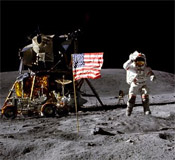United States National Aeronautics and Space Administration

United States National Aeronautics and Space Administration: Publications
Document Type
Article
Date of this Version
2014
Citation
Aerosol Science and Technology, 48:552–561, 2014
Abstract
We have developed a new numerical model for the non-steadystate operation of the Droplet Measurement Technologies (DMT) Cloud Condensation Nuclei (CCN) counter. The model simulates the Scanning Flow CCN Analysis (SFCA) instrument mode, where a wide supersaturation range is continuously scanned by cycling the flowrate over 20–120 s. Model accuracy is verified using a broad set of data which include ammonium sulfate calibration data (under conditions of low CCN concentration) and airborne measurements where either the instrument pressure was not controlled or where exceptionally high CCN loadings were observed. It is shown here for the first time that small pressure and flow fluctuations can have a disproportionately large effect on the instrument supersaturation due to localized compressive/expansive heating and cooling. The model shows that, for fast scan times, these effects can explain the observed shape of the SFCA supersaturation-flow calibration curve and transients in the outlet droplet sizes. The extent of supersaturation depletion from the presence of CCN during SFCA operation is also examined; we found that depletion effects can be neglected below 4000 cm−3 for CCN number.


Comments
U.S. Government Work